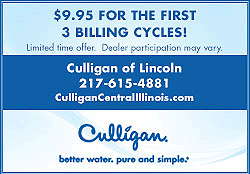|
 The lawsuit brought by subsidiaries of Imperial Tobacco Group,
Reynolds American Inc and Altria against the FDA in the U.S.
District Court for the District of Columbia is the second this year
over the directive. Tobacco companies withdrew an earlier lawsuit in
June after the FDA said it would hold off on enforcement actions
while it considered additional input on the policy. The lawsuit brought by subsidiaries of Imperial Tobacco Group,
Reynolds American Inc and Altria against the FDA in the U.S.
District Court for the District of Columbia is the second this year
over the directive. Tobacco companies withdrew an earlier lawsuit in
June after the FDA said it would hold off on enforcement actions
while it considered additional input on the policy.
The FDA released a new version of the directive on Sept. 8, but
plaintiffs said it had not meaningfully changed from the original.
The companies claim that even with the revisions the guidance
unlawfully imposes on their commercial speech rights under the First
Amendment and exposes them to civil or criminal penalties, according
to the lawsuit.

The FDA guidelines were initially issued by the FDA in March to help
clarify what changes to a tobacco product require regulatory
approval under the 2009 Tobacco Control Act. Among other things, the
FDA said that significant modifications to a product’s label that
make it distinct from the original version, such as a logo or
recognizable color pattern, or changes to the quantity sold in each
package, could require authorization.
Altria spokesman Brian May said in a statement that the company
continued to disagree with the FDA's requirements. A spokesman for
Reynolds American, David Howard, called the FDA’s actions an
attempted “end run” around the Tobacco Control Act.
An FDA spokesman declined to comment, and a representative for
Imperial Tobacco Group could not immediately be reached for comment.
[to top of second column] |

According to the tobacco companies' lawsuit, the Tobacco Control Act
limits the FDA's ability to require approval for tobacco product
changes to two narrow circumstances: products claiming to reduce
tobacco-related risks, or when prior approval is required by
regulation.
Although the guidance is framed as non-binding recommendations,
rather than a formal regulation, it creates legal obligations with
“clear and draconian consequences,” the lawsuit said. Plaintiffs
also say the FDA failed to follow proper rulemaking procedures
required for such a substantive measure.
Plaintiffs are seeking an order declaring the directive unlawful,
vacating it and stopping the FDA from enforcing it.
(Reporting by Jessica Dye; Editing by Alexia Garamfalvi and Diane
Craft)
[© 2015 Thomson Reuters. All rights
reserved.] Copyright 2015 Reuters. All rights reserved. This material may not be published,
broadcast, rewritten or redistributed.

 |